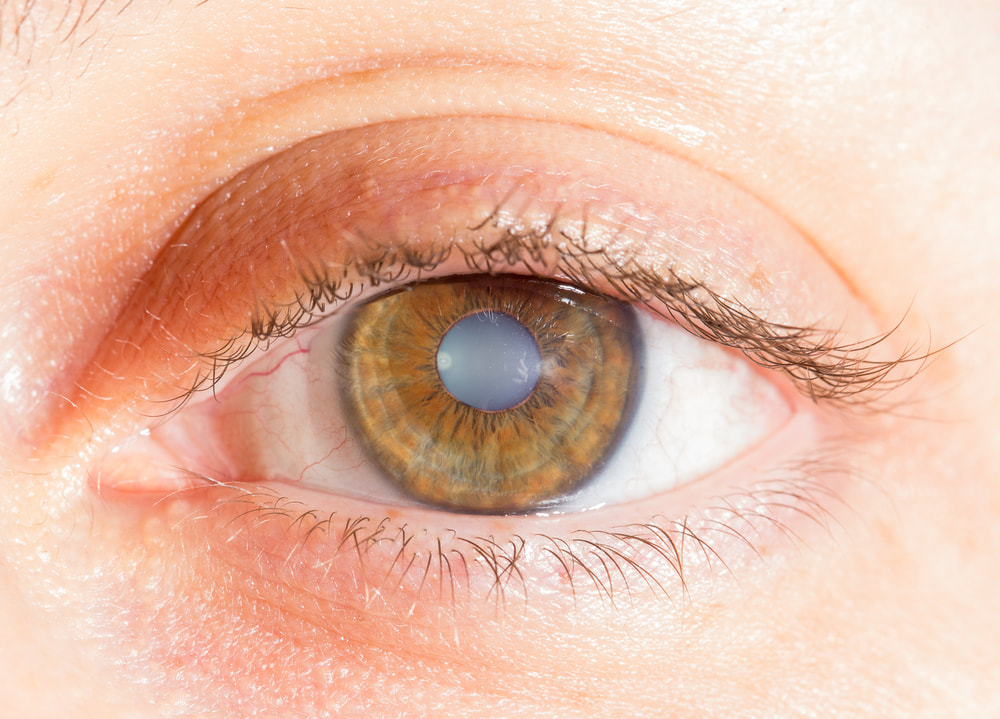What are cataracts?A cataract develops when the proteins in the lens of the eye break down. This causes your vision to be cloudy or hazy. Symptoms of cataracts include:
According to the American Academy of Ophthalmology, aging is the most common cause of cataracts. Additional risk factors for cataracts include:
What is Alzheimer’s?Alzheimer’s disease is a form of dementia, which affects thinking, behavior, and memory. As reported by the Alzheimer’s Association, Alzheimer’s disease is the most frequent cause of dementia. It accounts for up to 80 percent of cases of dementia. The greatest risk factor for developing Alzheimer’s is aging, but it is important to keep in mind that dementia is not a normal part of getting older. Symptoms of Alzheimer’s dementia include:
The link between vision loss and dementiaSome research suggests that there may be a link between vision problems, such as cataracts, and the development of dementia, such as Alzheimer’s. A study published in JAMA Internal Medicine indicated that the rate of dementia was up to 2.8 times greater in people that had vision loss. Additional research published in Ophthalmology indicated that people that have vision problems were significantly more likely to have dementia compared to people that did not have eyesight problems. Is there a link between cataracts and dementia?There also appears to be an association specifically between untreated cataracts and an increased risk of dementia. A study in JAMA Internal Medicine involved people aged 65 and older that did not have a dementia diagnosis at the time of the study enrollment. The participants received a diagnosis of cataracts before their dementia diagnosis. The participants were divided into two groups. One group had cataract surgery, and one group did not. The study found that the people that had surgery to remove their cataracts were 30% less likely to have a diagnosis of dementia as they age than those that did not have cataract surgery. A possible explanation of the linkResearchers are not completely sure why there may be a link between untreated eye conditions, such as cataracts, and an increase in dementia. One theory is that decreased vision that occurs with untreated cataracts may lead to reduced stimulation and sensory perception. Over time, this can have an adverse impact on cognition.
Visual impairment may also lead to a decrease in social interactions and a reduction in activities, such as exercise, reading, and hobbies. A reduction in these factors is strongly associated with cognitive decline. It makes sense that treating cataracts and restoring vision, may improve a person’s cognitive stimulation. Continued cognitive stimulation as a person ages may reduce their risk of developing dementia. Fortunately, cataracts are treatable with surgery. Treatment for cataracts can prevent vision loss, which helps some maintain their independence and quality of life. According to research, it may also reduce your risk of dementia. If you have any questions about cataracts or any other eye-related condition, we are happy to help. If you would like to ask whether an appointment with one of our eye doctors would be appropriate at this time, call our office at 508-746-8600. Comments are closed.
|
EYE HEALTH BLOGCategories
All
Archives
July 2024
|
|
Kadrmas Eye Care New England
55 Commerce Way, Plymouth, MA 02360
14 Tobey Road, Wareham, MA 02571 133 Falmouth Road (Rt 28), Mashpee, MA 02649 |
Phone Number:
1-508-746-8600 Hours: Monday through Friday — 8 AM – 4:30 PM |


 RSS Feed
RSS Feed
